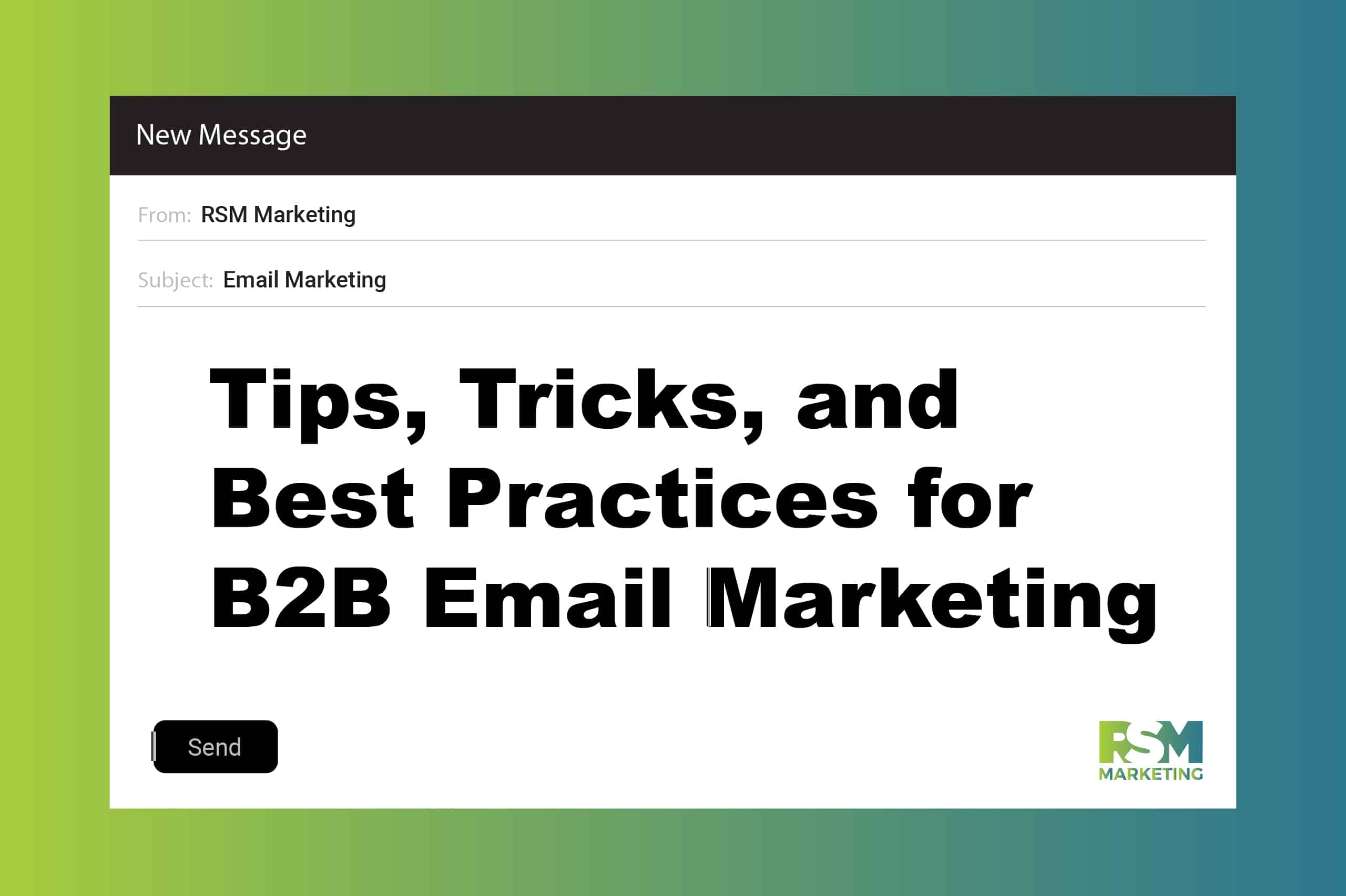Marketing Insights

SEO is the backbone of the online experience, as 68% of online behavior begins with a search engine. This is the primary reason most businesses use search engine optimization—SEO can drive over 1000% more traffic to a website or a business’ site than social media. For marketers, inbound SEO content is a 60% more reliable source of qualified leads than any other platform.
RSM Marketing has a thorough understanding of how the SEO process works. Any SEO campaign, whether to lift a site’s ranking, create informative content, or optimize a website, begins with keywords.
SEO and Keywords
Keyword research for SEO provides companies and marketers with valuable insight into what end-users and consumers are typing into search engines like Google. By understanding how these keywords work, companies get a clearer picture of their target audience’s search and how to best get their attention.
The keywords themselves represent the problems and solutions that users are researching online. Your company needs to utilize the correct keywords to make your content successfully visible to these customers and even other businesses.
However, there are only so many keywords that apply to a specific business or industry. Due to this limitation, companies have to choose the keywords carefully. You have to use keywords that you can reasonably compete for, and the keywords have to stay relevant to your industry—otherwise, you would just be writing or creating content around something that no one is searching for.
Many website owners miscalculate and choose the wrong keywords, which is why 90.3% of business sites don’t get traffic from Google at all. Identifying the best keywords for your business is crucial to redirecting traffic back to your site.
Elements of Keywords
Three major components affect keyword research.
- Relevance
- Authority
- Volume
Relevance refers to how valuable the keyword is when meeting the needs of the searchers or users. If you select a keyword for relevance, you must use it in content that provides quality information about that keyword. Your content should be highly relevant to it.
Authority defines sites rich with relevant and helpful information to customers or searchers. For example, if a person is searching for a store selling computer accessories, the site should contain information about computer peripherals and accessories. The content needs to be exceptionally valuable to prompt users to link back to it in other spaces.
Volume is measured by how many times audiences search that specific keyword per month. The search engines don’t specify which audiences do so; it considers all the searches across all audiences for that keyword throughout the month.
Identifying Your Ideal Keywords
Focus on Your Audience
The first step that any business has to take when identifying keywords is to know their target audience. Creating a buyer persona, or a semi-fictional representation of the type of person or group of people your company is looking for, aids significantly in developing the right keywords.
Remember that the keywords are the answers you want your company to rank for and what your audience wants. They may not always be what you prefer—focusing on your audience enables you to hone the campaign towards them and not what you want.
For example, a lawn care company wants to improve its SERP rankings. Some guide questions for keyword selection are:
- What type of lawn care services are popular search topics?
- Who are the people who would need these services and are thus searching for those terms?
- How do they search for these services? Do they often type with geotags, or do they only search for the terms specifically?
- What is the precise wording that they would use? What are standard terms within the industry that a customer would use?
From here, your company can identify what you provide as a solution to the questions and problems the audience is looking for.
Look for “Seeds”
Another method to identify your ideal keywords is first to locate seed keywords. These are the specific keywords that indicate your niche. Keywords such as “perfume,” “coffee shop,” or “catering” can be used as a starting point. They’re often the broadest, most general terms indicating your industry.
From there, you can start getting more specific, creating a list of keywords that can fall under those general terms. For example, if you have “perfume” as your seed keyword, you can create “custom blend perfume” or “room perfume.”
Combining the seed keywords with the research performed to identify the target audience will yield more specific keywords for your business. Keywords such as “custom home perfumes” or “scents for hotel rooms” and other similar, more precise words can be more valuable to your business.
Look into What Your Competitors Are Doing
Some businesses also study the keywords that their direct competitors are ranking for. These keywords already prove that they are good for redirecting search traffic back to competitor websites—that means they can do the same for you.
However, the first step is to identify your chief competitors. Take into consideration the two previous methods for defining keywords. The list generated from there can aid in identifying your top competitor companies. By inputting these keywords into the search bar, the first results that come up should be your top competitors. These are the keywords that are most effective in your niche.
Get the Help of Specialists
One of the best ways to find your ideal keywords is to seek out the help and guidance of experienced SEO specialists. These specialists would know to define the ideal keyword for your business. Furthermore, they would have kept track of the changes in the search engine algorithms, which can affect the effectiveness of your keyword campaigns.
RSM Marketing’s team of SEO marketing specialists notes the latest changes to Google’s ranking algorithms. We also stay on top of the best practices in defining effective keywords for companies that want to gain an edge over their biggest competitors in the market. Contact us today for a consultation and let us help you find the best keywords for your campaign, or read about our other marketing services.
Want Some Help?
That’s what we’re here for! Whether you need some guidance on moving in the right direction or a whole lot of marketing muscle—the experts at RSM Marketing can make it happen.
Start with a simple conversation! Complete the form and one of our team members will be in touch.




